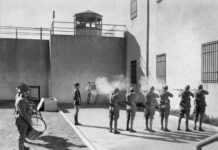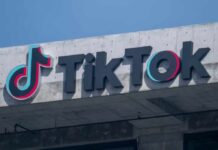
Arizona’s approval of Tesla’s ride-hailing service marks a pivotal shift in the autonomous vehicle landscape, challenging traditional players and regulatory norms.
Story Highlights
- Tesla received a permit for ride-hailing service in Arizona, a major step in its robotaxi expansion.
- The approval allows both human-driven and autonomous vehicle operations.
- Arizona’s favorable regulatory environment continues to attract autonomous vehicle innovation.
- Competition intensifies with established players like Waymo and Zoox in the mix.
Tesla Enters the Arizona Ride-Hailing Market
On November 17, 2025, Tesla was granted a permit by the Arizona Department of Transportation to operate as a Transportation Network Company (TNC). This approval allows Tesla to launch a ride-hailing service that includes both human-driven and autonomous vehicles. This move is part of Tesla’s strategy to expand its self-driving and robotaxi services across the United States, positioning itself as a formidable competitor in the autonomous vehicle sector.
This development follows Tesla’s submission of its TNC application on November 13, 2025, and is seen as a significant milestone in the company’s ambition to deploy robotaxis in multiple U.S. metropolitan areas by the end of the year. Tesla’s hybrid approach of combining human-driven and autonomous vehicle operations reflects its commitment to innovation while ensuring safety and reliability.
Watch:
Background and Context
Arizona has long been a hub for autonomous vehicle testing due to its supportive regulatory environment. This has attracted several companies, including Waymo and Zoox, to test and deploy their autonomous technologies. Tesla’s entry into this market highlights its intention to capitalize on Arizona’s openness to autonomous innovation. The state’s self-certification process for autonomous vehicle testing makes it a strategic location for companies seeking to scale their mobility solutions.
The regulatory landscape in Arizona has been shaped by previous incidents, including safety challenges involving other autonomous vehicle operators. These precedents have prompted increased scrutiny and evolving state-level oversight, making Tesla’s successful application a noteworthy achievement.
Implications of Tesla’s Permit
The short-term implications of Tesla’s entry into Arizona’s ride-hailing market include increased competition and more options for consumers. It also allows Tesla to further test and refine its Full Self-Driving (FSD) technology. In the long term, the approval could accelerate the adoption of autonomous vehicles nationwide, disrupt traditional ride-hailing and taxi services, and influence regulatory frameworks across the U.S.
Tesla gets approved to launch ride-hailing service in Arizona https://t.co/k1WDMx3EE5
— Jazz Drummer (@jazzdrummer420) November 19, 2025
As Tesla begins operations in Arizona, the impact on local commuters, competing companies, and regulatory bodies will be closely monitored. The economic effects include potential job creation in vehicle operations and support, although there may also be job displacement in traditional sectors. Socially, while increased mobility options are welcomed, public safety concerns regarding autonomous vehicles remain a topic of discussion.
Sources:
Tesla Gets Permit for Ride-Hailing Service in Arizona

























